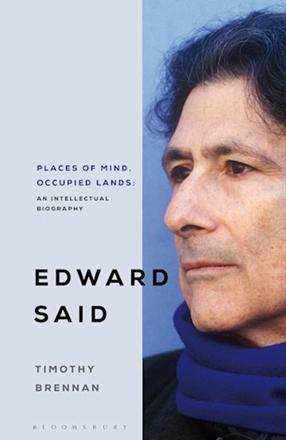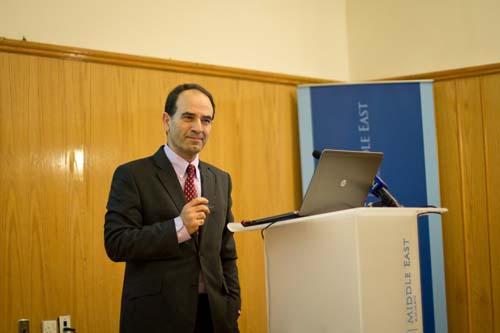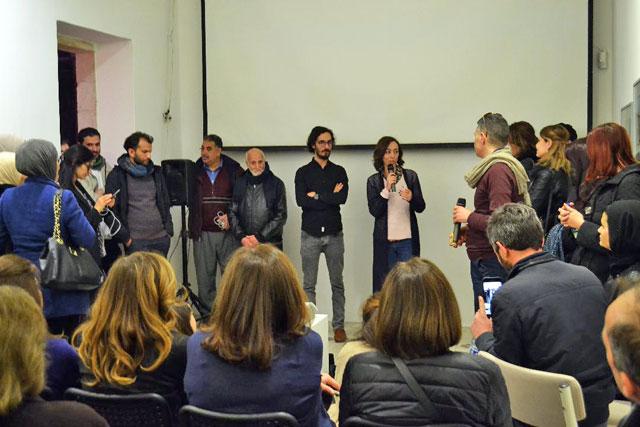You are here
Book talk sheds light on life, influence of Edward Said
By Saeb Rawashdeh - Nov 27,2021 - Last updated at Nov 27,2021

Professor Timothy Brennan speaks about his recent book ‘Places of Mind: A life of Edward Said’ during a book talk organised by the Columbia Global Centres in Amman on Tuesday (Photo courtesy of the Columbia Global Centres in Amman)
AMMAN — The global influence of renowned Arab-American intellectual Edward Said remains in every corner of the world, according to an American scholar.
During a book talk titled “Said in Exile”, organised by the Columbia Global Centres in Amman on Tuesday, Timothy Brennan, professor of Comparative Studies, Literature and English from the University of Minnesota, spoke about his recent book “Places of Mind: A life of Edward Said”.
“There are many things to consider talking about a person of immense global importance that Edward was,” noted Brennan.
Said made “a clear distinction between refugees and economic immigrants” and he strongly identified with Palestinians who were forced out of the historic Palestine by Zionism, Brennan said.
He added that although his family voluntarily moved from Jerusalem to Cairo to develop a family business, “he felt the pain of fellow Palestinians who were forced out”.
“In the States, Said understood exile in a multifaceted way through the official mythology of the origins of the US itself,” Brennan stressed.
He said that Said was very instrumental in the political arena when the West nourished anti-Arab sentiments, believing that literature has dramatic effect on politics.
The question of Said’s “Arabness is connected to the question of his Arabic language”, Brennan said, adding that he would get angry at Arabs who would start a conversation with him in English.
Moreover, Said always connected literature with politics, and in works of Plato, Milton and Ibn Khaldoun he found didacticism, Brennan said.
“He left us with the ideas that are both political and literary at the same time and that everyone has the right to tell their story, universities as Utopian spaces whose role is to summon the intellectuals as the guardian of the historical record,” Brennan underscored.
Related Articles
Much has been written about Edward Said, but this is the first comprehensive biography in English of the renowned scholar, covering his personal, professional and political life. The author, Timothy Brennan, teaches in the humanities at the University of Minnesota and has written several scholarly books on world literature, making him well-informed on subjects close to Said’s heart. Brennan is obviously an admirer of Said but the book does not simply sing his praises. Rather, it is a critical review of the development of his thinking, writing, and influence over the years.
Only three Chinese novels were translated into English in 2012, while Arabs translated 30 of their fictional works into what is widely regarded as the world’s “universal language”, a scholar and translator has said.
AMMAN — The legacy of celebrated intellectual and prolific writer Edward W.


















